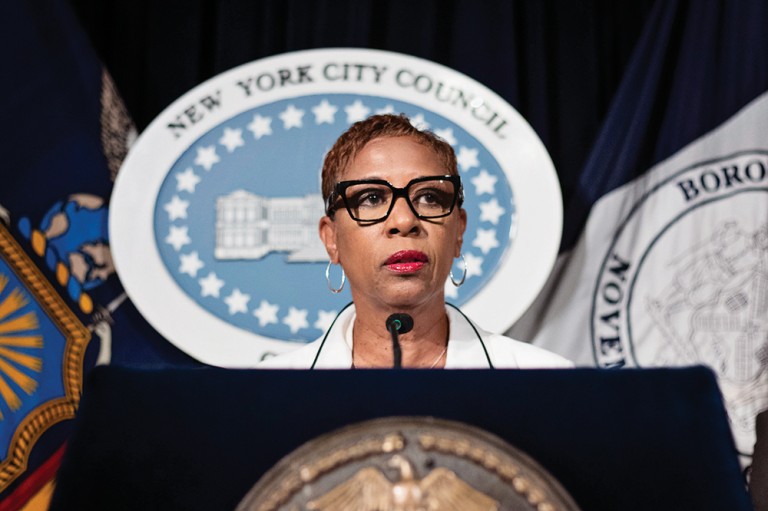By Forum Staff
The City Council on Thursday voted in favor of legislation establishing municipal efforts to acknowledge and address the legacy and impact of slavery and racial injustices in the five boroughs.
The package of bills would establish a Truth, Healing and Reconciliation process on slavery within NYC, a reparations study, informational signs at the city’s first slave market, and a taskforce to consider the creation of a “freedom trail” commemorating abolitionist movement and Underground Railroad sites.
Intro. 242-A would require the Commission on Racial Equity (CORE) to establish a Truth, Healing, and Reconciliation process in connection with the City’s historic involvement in slavery and its present-day legacies. The objectives would be to establish facts about slavery in New York City and its ongoing legacies, protect and acknowledge affected persons and communities, and recommend changes for government and institutions to prevent the perpetuation and recurrence of injustices from the legacy of slavery. CORE would be required to conduct public engagement activities and publish its findings and recommendations. Its work would be coordinated with the State Community Commission on Reparations Remedies.
Intro. 279-A would require CORE to work with subject-matter experts to study the historical and present-day role of New York City government in perpetrating or perpetuating slavery and related racial injustices, and to consider reparative measures for such injustices. The reparations study would document the harms of slavery and its legacies in the City, identify associated rights violations, and recommend potential legal, policy, and other measures to help remedy or redress associated harms. The study would also propose eligibility criteria for receiving reparations. CORE would coordinate with the New York State Community Commission on reparations, remedies, and the City’s process for Truth, Healing, and Reconciliation required by Int. 242-A.
Intro. 471-A would establish a task force to consider the creation of a citywide New York City freedom trail and a “Lower Manhattan freedom trail.”
Intro. 833-A would require the City Department of Transportation to facilitate the installation and maintenance of an informational sign near the intersection of Wall and Pearl streets in Manhattan to mark the site of New York’s first slave market.
“The legacy of slavery and systemic racism has impacted all facets of our society today, and it’s important that our city recognizes and takes steps to redress these longstanding harms,” Council Speaker Adrienne Adams said. “By creating new processes to fully examine the present-day impacts of injustices inflicted on Black New Yorkers and communities, we are advancing necessary efforts to consider potential remedies that can lead to healing and reconciliation. The Council’s legislation builds on the work we have done to confront historic inequities perpetuated by systemic racism, and will be coordinated in conjunction with the New York State Community Commission on Reparations Remedies. With the advancement of these bills, along with the establishment of the NYC Commission on Racial Equity, its work, other changes approved by New Yorkers in the 2022 election and secured by city leaders, our city is continuing towards the equity and justice that our communities deserve.

